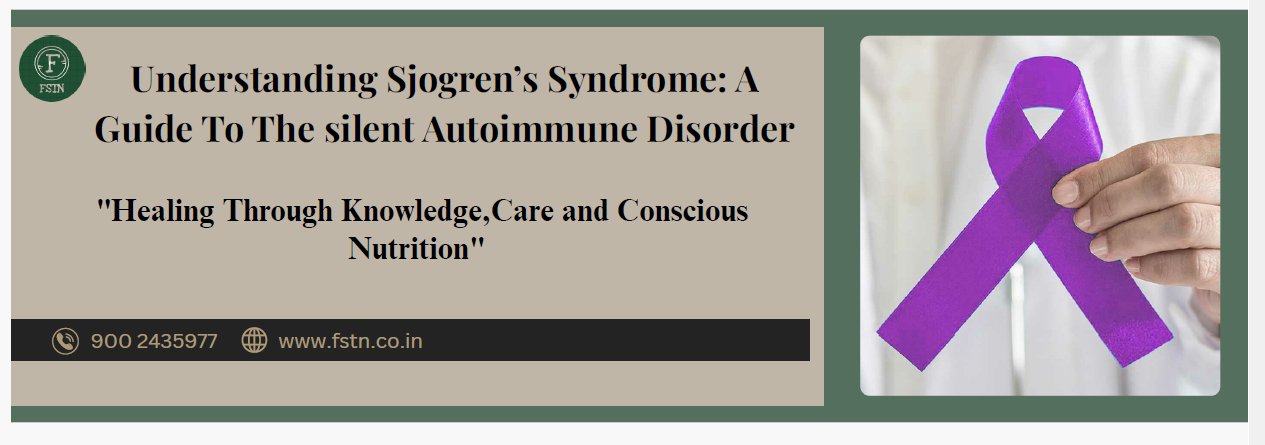Sjögren’s Syndrome is an often misunderstood Autoimmune Disorder where the body’s immune system mistakenly attacks its own moisture-producing glands, primarily the eyes and mouth. While it may start with seemingly minor discomforts—like dry eyes or a dry mouth—it can evolve into a systemic issue affecting joints, lungs, kidneys, and even nerves.
Types of Sjögren’s Syndrome :
There are two types:
Primary Sjögren’s Syndrome: Occurs on its own, without association with another autoimmune condition.
Secondary Sjögren’s Syndrome: Secondary Sjögren's syndrome is a condition in which signs like dry eyes and dry mouth appear in people who are already diagnosed with another autoimmune disorder, such as lupus or rheumatoid arthritis.
Causes:
While the exact cause remains unclear, Viral infections may play a role in triggering the immune system’s misdirected response. In this scenario researchers believe Sjögren’s syndrome results from a combination of
- genetic predisposition
- environmental triggers
- hormonal influences
Risk factors:
- Gender: Women are more commonly affected (about 9 in 10 patients).
- Age: Usually diagnosed after the age of 40.
- Family history of autoimmune diseases.
- Co-existing autoimmune conditions.
The hallmark symptoms are:
- Dry eyes (burning, itching, feeling of sand in the eye)
- Dry mouth (difficulty swallowing, speaking, or altered taste)
Other symptoms include:
- Fatigue
- Joint pain or swelling
- Swollen salivary glands
- Skin rashes or dry skin
- Vaginal dryness
- Persistent dry cough
Medical Nutrition Therapy and Lifestyle Modifications:
Diagnosis is frequently delayed because the symptoms resemble those of other medical conditions. Nutrition plays a vital role in managing symptoms and supporting immune function.
- Hydration: Stay well-hydrated by drinking more water and using sugar-free gum or lozenges to help boost saliva production.
- Anti-inflammatory foods: Include Omega-3 rich foods like flaxseeds, chia seeds, walnuts, and fatty fish.
- Vitamin D and Calcium: To support bone health—found in fortified foods, dairy, and sunlight exposure.
- Vitamin C-rich foods: Citrus, Berries and Kiwi can help maintain healthy mucous membranes.
Avoid trigger foods:
- Spicy or acidic foods (may irritate dry mouth)
- Caffeine and alcohol (can worsen dryness)
- Processed sugar (can worsen inflammation)
Prevention and Self-Care:
Though Sjögren’s cannot be prevented entirely, early diagnosis and mindful living can reduce complications.
- Regular dental care to prevent tooth decay
- Use of lubricating eye drops and mouth gels
- Stress management through meditation and gentle exercise
- Periodic check-ups for systemic involvement
A Compassionate Note:
Living with Sjögren’s can be a Silent Battle—often invisible to others, yet deeply felt. Compassion, early support, and personalized care are key to improving quality of life. While there’s no cure, yet lifestyle modifications, nutritional mindfulness and medical care can make each day a bit easier and fuller.



